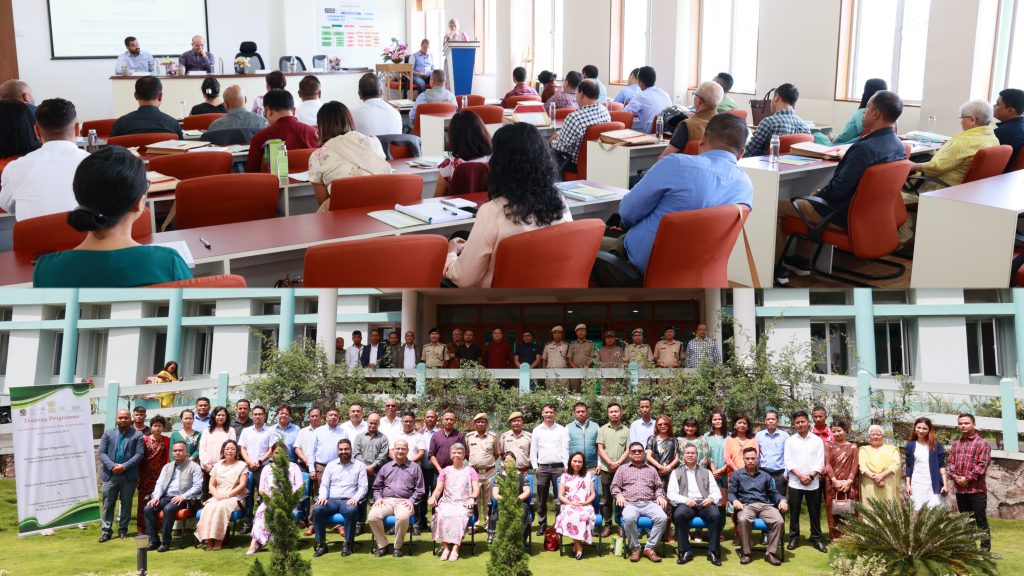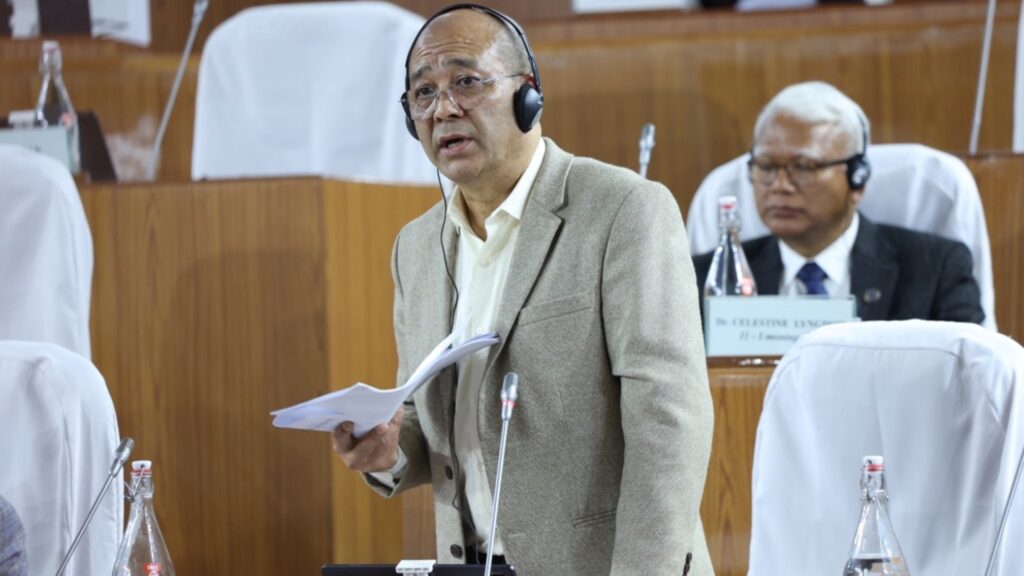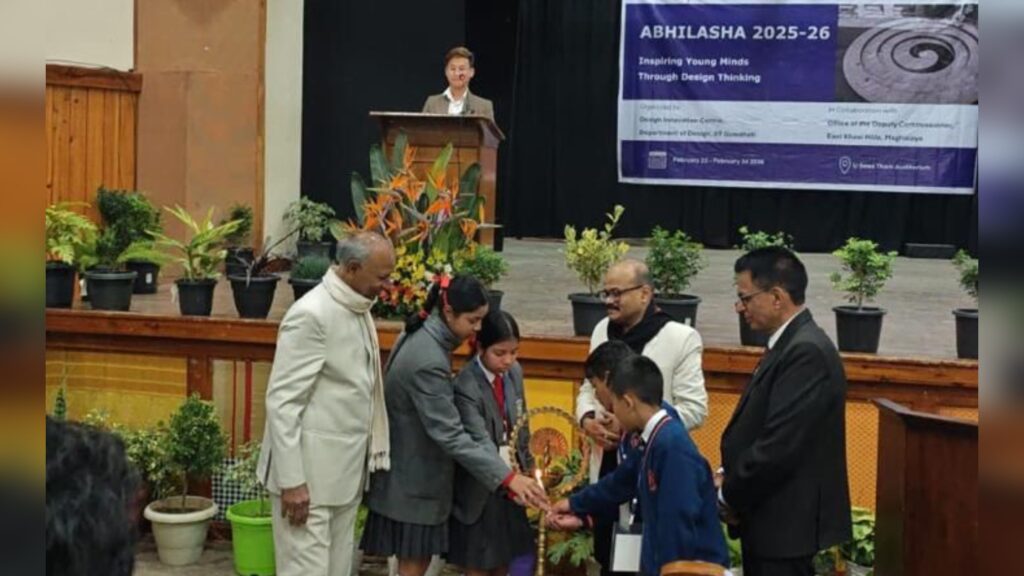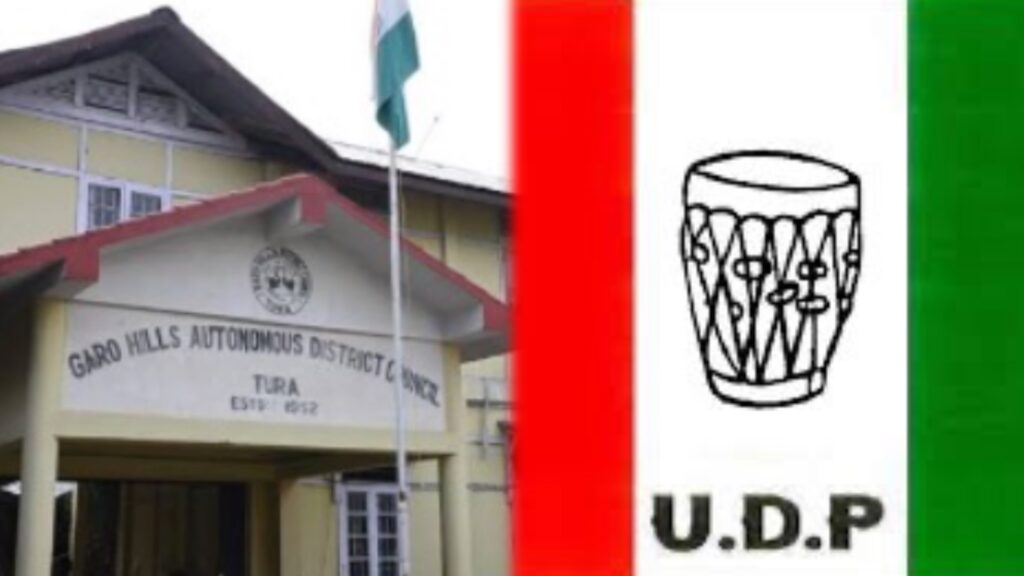Shillong, September 11 : For effective, efficient and comprehensive management of disasters in India and Meghalaya in particular, and with a vision to minimize loss of life and property by strengthening and standardising the disaster response mechanism, the National Institute of Disaster Management (NIDM), Ministry of Home Affairs, Government of India, in collaboration with the Meghalaya State Disaster Management Authority (MSDMA) and Meghalaya Administrative Training Institute (MATI) organised a four days training programme on Incident Response System (IRS): Basic & Intermediate at MATI, Shillong.
The training saw the participation of representatives from district disaster management authorities, officers from state government departments, representatives from the Meghalaya Police and other stakeholders.
The Secretary, Revenue and Disaster Management Department and Executive Director, State Disaster Management Authority, Meghalaya, M. War Nongbri, in her inaugural address said that though India has been successfully managing disasters in the past, there are still a number of shortcomings which need to be addressed. The response today has to be far more comprehensive, effective, swift and well planned based on a well conceived response mechanism. She said that the Government of India is keen on ensuring that we address these shortcomings by putting in place the Disaster Management Act, 2005. This act has brought a paradigm shift in disaster management, she said, because it has brought in pre prevention, mitigation and preparedness method of management.
Highlighting the recent massive disaster in terms of Covid-19, M. War Nongbri said that as a State we have experienced a number of shortcomings such as lack of accountability because of adhoc and emergent nature of arrangement with no prior training, lack of orderly and systematic planning process and an unclear chain of command and supervision of response activity. Therefore, there is an urgent need for a proper and well prepared response system and well thought pre-designated roles for each member of the response team, systematic and complete planning process and system of accountability and clear cut chain of command and effective resource management. She said that the Response System is so important because it helps us to react promptly to situations and put us in a very strong position to ensure that we not only help ourselves but we also help others. She expressed hoped that the training will prove beneficial to all participants so that they can put into action in times of need. She called upon the participants to provide inputs, thoughts and suggestions for future incorporation in disaster management plan of the State.
Shekher Chaturvedi, Asstt. Professor, Division of Disaster Response & Recovery, NIDM, Delhi, while explaining about the training programme, said that the training, designed with theoretical and practical exercises, will help to prepare and execute different tactical operations required in response to the disaster. Moreover, it will facilitate line departments and get their officers trained in their respective roles. Highlighting about the Meghalaya mega mock drill that will be conducted in October, Chaturvedi said that this training will give clarity on the roles and responsibilities needed for officers. He expressed hoped that the participants benefit from this training and will be able to address those issues when the need arises.
Chaturvedi is being assisted by Arun Verma, Young Professional, Centre of Mass Congregation & Transport related Disasters, Division of Disaster Response & Recovery, NIDM, Delhi in the training process.








